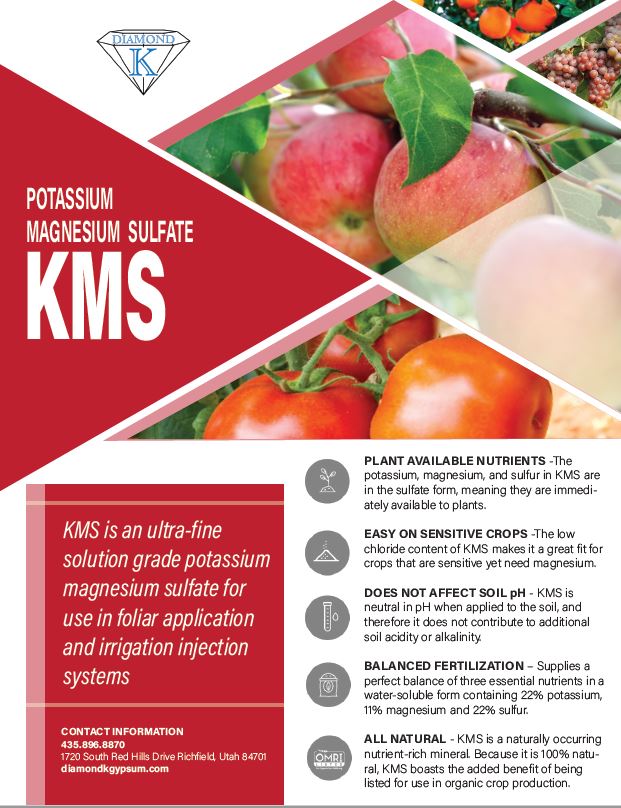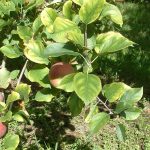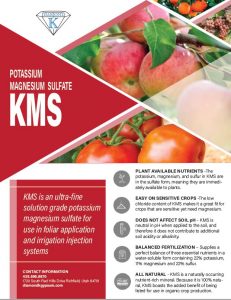
02 Mar Magnesium Can Improve Disease Resistance and Crop Quality
Did you know magnesium (Mg) can have both indirect as well as direct effects on disease? Balanced magnesium and cation nutrition are critical for disease resistance. Because magnesium deficiency can influence a wide range of plant functions, there are few studies of the direct effects of Mg deficiency on plant disease.
It is known that fusarium wilt tends to be less severe when adequate Mg is available. Mg also increases the resistance of soft rotting pathogens. Magnesium is an important contributor to overall plant health. Management of Mg nutrition to reduce disease, in balance with other minerals, is an underutilized tool for disease control. Learn More.
Magnesium Improves Crop Quality
Increasing Mg supply in Mg-deficient plants tends to increase the quality of crops. In fruits and vegetables, ratios of Mg to other nutrients like Ca and K were shown to be a more reliable indicator of the quality response than the Mg status alone. However, Mg doses beyond those required for maximum yield rarely induce a further improvement of product quality. Learn More.
Plants suffering magnesium deficiency show interveinal chlorosis (dark green veins with yellow areas between them) in older leaves first. This is because magnesium is mobile in the plant. The lower or older leaves are always affected first. If the deficiency is bad enough the yellowed or chlorotic leaves develop spotted areas of dead tissue and the leaf edges will curl.

Fine Tuning Magnesium
One of the best ways to ensure you have adequate magnesium and ideal balance in your basic cations is by incorporating KMS into your fertility program. KMS is an ultra-fine, solution-grade potassium magnesium sulfate for use in ground spray equipment or irrigation injection systems for soil applications.
It is immediately plant-available since all then nutrients are in the sulfate form.
It has a low chloride content, so it can be used on sensitive crops. KMS is neutral in pH, so it won’t affect soil pH when soil is applied. It is all-natural and can be used on organic acres.
Download the KMS Information sheet or to learn more about utilizing KMS in your fertility programs, contact your Diamond K Rep todayKMSproductSheet


